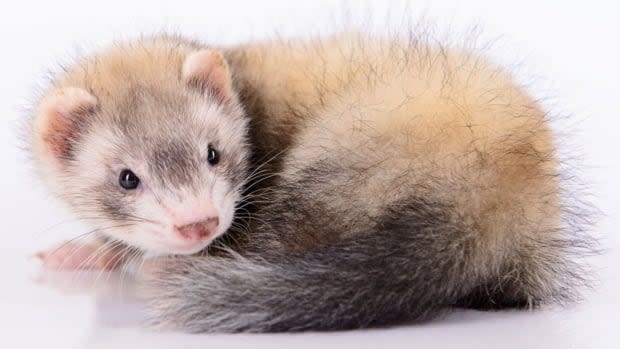Animal rights activist concerned about potential for COVID-19 spread among N.S. mink farms

An animal rights activist is concerned about the potential spread of COVID-19 at Nova Scotia mink farms after the animals have started testing positive in British Columbia.
"Mink are basically the perfect setup for the spread and transfer of disease between animal to animal," Ty Savoy told CBC's Information Morning Halifax on Tuesday.
"They get COVID-19 just like we do and they're immunocompromised because they're raised in these cages … [they're in] the equivalent of a stadium full of people," Savoy said.
Last week, British Columbia placed a moratorium on new mink farms and capped existing farms at their current numbers after several animals tested positive for the virus.
The province's Agriculture Ministry said three out of nine farms in B.C. have had mink test positive since December.
This has Savoy worried.
Mink can not only contract COVID-19 but also spread a mutated strain of the virus to humans, according to the World Health Organization.
Earlier this year, Denmark and the Netherlands destroyed all of their farmed mink because of COVID-19 outbreaks.
Savoy doesn't want the same to happen in Nova Scotia.
Nova Scotia has more than 40 mink farms, which house about 168,000 mink, according to the Department of Agriculture.
Zero COVID-19 cases on N.S. mink farms
Matt Moses, the president of the Nova Scotia Mink Breeders Association, said people shouldn't be worried about COVID-19 spreading from minks to humans as cases remain low.
So far, there have been no reported cases of the virus on mink farms in Nova Scotia.

"Here in Canada, we have a very different situation than many other countries where [our] farms are spread over such a geographical area so it enables us to be a little safer as most mink farms are removed from human populations," he told Information Morning.
Moses, who is also a mink producer in Nova Scotia, said the farms have biosecurity practices to prevent the spread if the mink become infected, including rapid testing and vaccinating workers.
He said employees who work closely with mink wear proper protective gear and are expected to be fully vaccinated.
He said the farms are also working to get the mink vaccinated as soon as possible.
"Its rollout is slower than we would like but as vaccine becomes available, we are administering the vaccine in a two-shot regimen much like the human population, to protect the mink," he said.
"And once fully vaccinated, they are protected, much like we, are from COVID."
He said if an unlikely outbreak does occur, the farm would work with public health to quarantine and monitor the animals, while also providing medical care.
MORE TOP STORIES

 Yahoo Movies
Yahoo Movies 